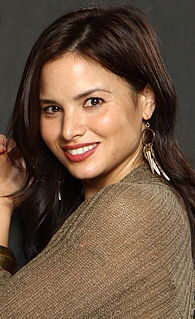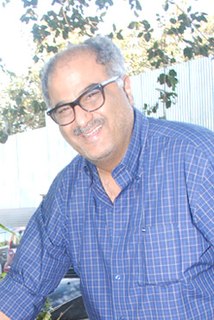A Quote by Sergio Leone
You see in Once Upon a Time in the West the whole film moves around her [Claudia Cardinale]. If you take her out, there's no more film. She's the central motor of the entire happening.
Related Quotes
Her kitsch was the image of home, all peace, quiet, and harmony, and ruled by a loving mother and a wise father. It was an image that took shape in her after the death of her parents. The less her life resembled the sweetest of dreams, the more sensitive she was to its magic, and more than once she shed tears when the ungrateful daughter in a sentimental film embraced the neglected father as the windows of the happy family's house shone out into the dying day.
This was her, Mick Kelly, walking in the daytime and by herself at night. In the hot sun and in the dark with all the plans and feelings. This music was her—the real plain her...This music did not take a long time or a short time. It did not have anything to do with time going by at all. She sat with her arms around her legs, biting her salty knee very hard. The whole world was this symphony, and there was not enough of her to listen... Now that it was over there was only her heart beating like a rabbit and this terrible hurt.
Look at Charlotte Gainsbourg, in the Lars von Trier film Antichrist. She's unbelievable. She doesn't act; she's there. She's great. And you love her for that, because it's so daring, what she has to do. And she does it as if it is nothing. I think she's brave. I fell in love with her when I saw that film. She is a revelation. Total revelation.
Once upon a time there was a girl who wanted to put her fist through a mirror. She would tell everyone it was so that she could see what was on the other side, but really, it was so that she wouldn't have to look at herself. That, and because she thought she might be able to steal a piece of glass when no one was looking, and use it to carve her heart out of her chest.
I can tell you one other story about Rent Control. The lead actress in the film, her name was Elizabeth Stack, and it turned out she was Robert Stack's daughter. The only problem with that - and she was lovely - was that she was basically hired because [Gian Luigi Polidoro] thought she was [film producer] Ray Stark's daughter. And he figured that if he ran out of money, her father would kick in some more. I can still remember the day he freaked out when he realized she was actually Robert Stack's daughter. He was just screaming "Untouchables!" over and over.
It’s not like love at first sight, really. It’s more like… gravity moves. When you see her, suddenly it’s not the earth holding you here anymore. She does. And nothing matters more than her. And you would do anything for her, be anything for her… You become whatever she needs you to be, whether that’s a protector, or a lover, or a friend, or a brother.
She realized how many of her beliefs were either unrealistic or belonged to her deceased parents and her ex-husband. She also realized that her expectations for herself and others were sometimes too rigid. She was trying to live up to what everyone else said was best for her, which made her depressed and hard to be around at times. Once she changed her beliefs about herself and others, she began to smile more and enjoy life.
At that moment a very good thing was happening to her. Four good things had happened to her, in fact, since she came to Misselthwaite Manor. She had felt as if she had understood a robin and that he had understood her; she had run in the wind until her blood had grown warm; she had been healthily hungry for the first time in her life; and she had found out what it was to be sorry for someone.
Tibby sat on the outside of a group of kids in the film program. There was a lot of dark clothing and heavy footwear, and quite a few piercings glinting in sunlight. They had invited her to sit with them while they all finished up their lunches before film seminar. Tibby knew that they had invited her largely because she had a ring in her nose. This bugged her almost as much as when people excluded her because she had a ring in her nose.
If the next car passed is blue, Violet will be okay, she thought. If it's red, A will do something horrible to her. She heard a growl of an engine and shut her eyes, afraid to see what the future might hold. She'd never cared so much about anything in her life. Just as the car was passing, she opened her eyes and saw a Mercedes hood ornament. She let out a long sigh, tears coming to her eyes once more. The car was blue.
Yes, I saw Twilight - my granddaughter made me watch it, she said it was the greatest vampire film ever. After the 'film' was over I wanted to smack her across her head with my shoe, but I do not want a (tell-all) book called Grannie Dearest written on me when I die. So instead I gave her a DVD of Murnau's 1922 masterpiece Nosferatu and told her, 'Now that's a vampire film!' And that goes for all of you! Watch Nosferatu instead!





































